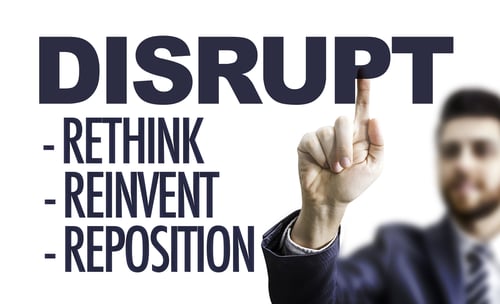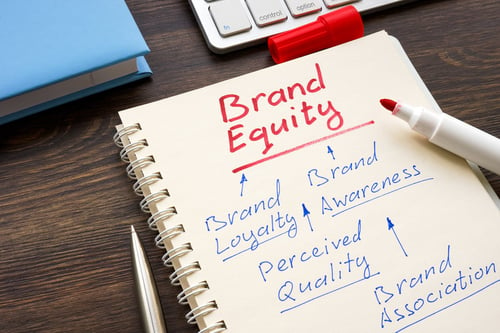
In 2023, many companies seem to have become "purpose-driven organizations. " When visiting corporate websites, phrases such as "creating an effect" or "making a positive change in the world" are found in mission statements. Companies face increased pressure to articulate and communicate their purpose to their customers, which is good.
Brand Purpose Goes Beyond CSR and PR Campaigns for Customer Loyalty
Nonetheless, many businesses are approaching purpose incorrectly, treating it as a PR campaign or a single CSR program with little substance. Customers can sense these superficial attempts to craft purpose where there is none. Purpose is not CSR or philanthropy; it is an honest expression of what the company and its customers can do together to form a brighter future that exceeds products and short-term financial profits. It is based on obtaining customers' approval and enabling them to do more with the company over time.
Nowadays, people make decisions based on products or prices and evaluate how a company acts and expresses its values. According to Accenture Strategy's survey of almost 30,000 consumers, 62% want companies to take a stand on sustainability, openness, and fair employment in a manner that aligns with their values. 47% will turn away if dissatisfied with an organization's words or actions on a social issue, and 17% will not return. This is an opportunity for companies to develop genuine connections with customers and create a sense of brand belonging.
Despite our constant digital connectivity, Individuals seek this belonging in an increasingly divided and forlorn world. In fact, data from Edelman shows that people now trust businesses more than governments. Nearly three-quarters (73%) of respondents think companies can increase profits and promote social and economic conditions in their local communities. Additionally, 76% claim that CEOs should take the lead on change with regard to discrimination, equal pay, and the environment instead of waiting for governments to act.
Businesses must bear in mind the great responsibility that comes when customers put their faith in them. They must authentically contemplate their purpose and communicate it to customers. This will enable customers to become committed participants and advocates. By nurturing this shared purpose, companies will become part of customers' lives and gain what is known as Share of Life. This relationship will potentially last a lifetime and is not just linked to a product or service. With this, how brands and customers interact is evolving - more directly and deeply. Understanding that purpose should be practiced with customers makes companies like Patagonia, Warby Parker, and SAP stand out.
Seventh Generation and Its Mission to Create Sustainable and Ethical Products
As the US's premier retailer of eco-conscious cleaning supplies, Seventh Generation sets the standard for human well-being and environmental sustainability. This unwavering commitment has established the brand as a leader in the industry and cultivated a loyal and growing customer base.
Acquired by Unilever in 2016, Seventh Generation is a purpose-driven innovator whose mission is to inspire "a consumer revolution that nurtures the health of the next seven generations." The mission is the guiding light that directs the brand's leadership, operations, and marketing. It is the unwavering reference point for all decision-making, grounded in authenticity and purpose.
Kees Kruythoff, President of Unilever North America, stated: “We’re thrilled to add Seventh Generation to our brand portfolio, providing us with the opportunity to accelerate growth with our retail partners and connect in new ways with consumers. Adding Seventh Generation to Unilever’s portfolio of purpose-driven brands like Ben & Jerry’s and Dove demonstrates our continued commitment to the Unilever Sustainable Living Plan.”
At its core, Seventh Generation is driven by a strong brand purpose: to create products that inspire individuals and families to lead healthier and more sustainable lives. This commitment has been demonstrated in their long-term goals of reducing water usage throughout the supply chain, improving energy efficiency, and promoting sustainable agriculture practices. In addition, they are committed to creating products that are 100% biobased and free of toxic chemicals, dyes, and fragrances.
To reduce environmental impact, Seventh Generation reduces waste by using recycled packaging materials and focusing on producing smaller quantities of products that can be replaced quickly when they run out.
Seventh Generation is taking bold steps to ensure a sustainable future. By 2025, the brand plans to operate entirely on renewable energy, source natural or recycled materials, and adopt 100% zero-waste packaging.
Seventh Generation implements an internal carbon tax that doubles to $12 per ton of greenhouse gases emitted to further prove its commitment. This creates additional incentives for sustainability and funds eco-friendly advancements. Setting goals and aligning environmental and financial objectives is crucial to championing sustainability.
The company's dedication to its brand purpose aligns with its commitment to creating a better world for future generations. By committing to its core values of transparency, integrity, and innovation, the company sets an example for others in the industry.
Recent Posts
Posts by Topics
- Brand Strategy (57)
- Brand Strategy Consulting (28)
- Brand Differentiation (27)
- Customer Experience (24)
- Brand Positioning (22)
- Marketing Strategy (9)
- Brand Extension Strategy (8)
- Customer Behavior (8)
- Brand Architecture Strategy (7)
- Brand Extension (7)
- Brand Growth (7)
- Brand Portfolio & Architecture (7)
- Brand Purpose (7)
- Brand Value Proposition (7)
- Brand Engagement (6)
- Brand Portfolio Strategy (6)
- Brand Storytelling (6)
- Rebranding Strategy (6)
- Brand Awareness (5)
- Brand Image (5)
- Branding (5)
- Rebranding (5)
- Technology (5)
- B2B Brand Strategy (4)
- Brand Experience (4)
- Value Proposition (4)
- Brand Extendibility (3)
- Brand Metrics (3)
- Brand Repositioning (3)
- Corporate Branding (3)
- Differentiation Strategy (3)
- Measurement & Metrics (3)
- Brand Engagement Strategy (2)
- Brand Portfolio (2)
- Brand Promise (2)
- Brand Voice (2)
- Digital Marketing (2)
- Digital and Brand Experience (2)
- Employee Brand Engagement (2)
- Brand Architecture (1)
- Brand Development (1)
- Brand Equity (1)
- Brand Identity (1)
- Brand Measurement (1)
- Brand Name (1)
- Brand Strategy Consultants (1)
- Brand Strategy Firms (1)
- Digital Strategy (1)
- Internal Branding (1)
- Messaging (1)


